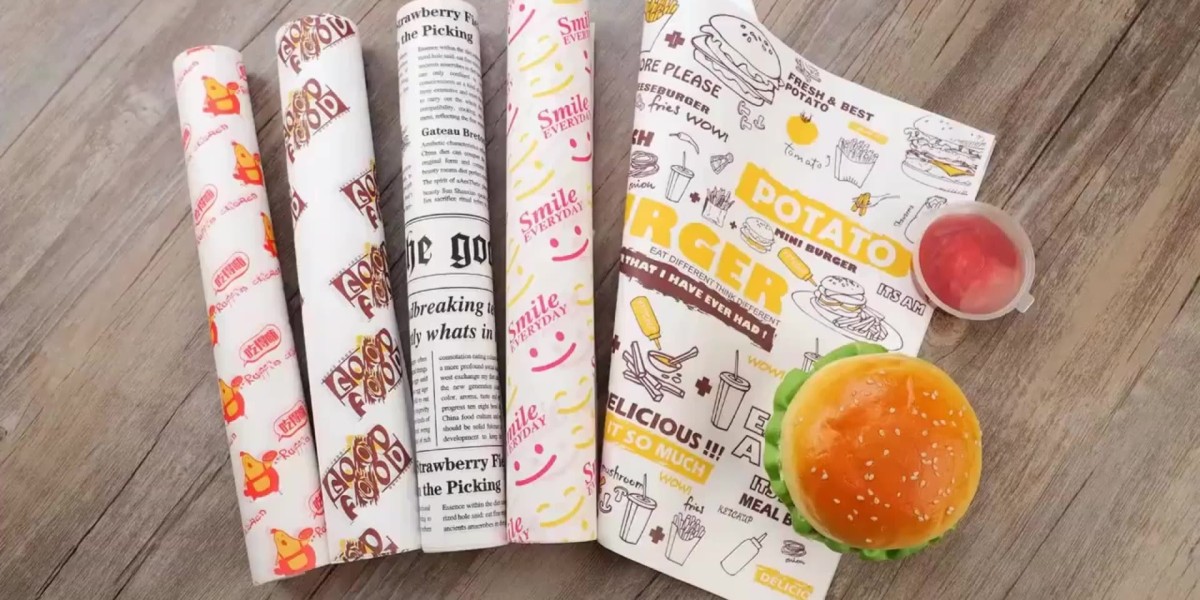Custom deli papers are vital products used in the food packaging business, and they provide functional, consumer safety, and branding. With the growing popularity of customized printed deli paper and customizable deli paper, it has become important that the manufacturers have deli paper of high quality that will satisfy all those people who come looking to buy it.
Tremendous testing is essential to ensure that performance is retained under temperature, moisture, and grease exposures, along with compliance with food safety requirements.
During production, the quality is addressed, not least with the selection of the raw materials used, stability in printing, and environmental sustainability as a factor that is concerned with quality. This paper describes the testing process that producers go through to address the increasing demands of the current deli paper wholesale trade.
Standards of Material Sourcing
Quality deli paper sheets also start with quality raw materials. Paper pulp is also tested by manufacturers for purity, strength of the fibers, and food-grade quality. Chemical leaching into food can be avoided by the use of chlorine-free, acid-free materials. Strict fiber distribution provides even strength and appearance of paper, which is important in custom-printed deli paper applications. It is also a way to trace the material traceability, namely, be sure of its ethical and sustainable origin, which becomes more and more of an issue for current brands.
Grease Resistance Testing
As deli paper tends to be used as a covering material, such as for sandwiches, meats, or pastries, which are greasy, grease resistance is among the most valuable qualities of deli paper. Greaseproof testing consists of putting the paper under pressure in direct contact with fatty materials and measuring leakage (stain-through) with time. Customized deli paper should be aesthetically pleasing, with the ability to turn transparent or oily. The tests assist in ascertaining that the product is effective in protecting the food as well as the hands or clothes of the customer.
Print Quality and Reproducibility
Custom-printed deli paper is more than merely practical; it is a marketing tool. Ink adhesion and the smudge-proof tests are carried out to allow a print quality to be maintained in a real-world use case. These tests mimic folding, crumpling and heating, or wetting. The most important thing is that the logos and patterns stay clear and readable, even after prolonged exposure to food. Migration of the inks is also tested, and they should be safe, non-toxic, and FDA-approved in order to prove food safety compliance.
Evaluation of Wax Coating
A more common change to deli sheets is wax papers, which are more grease and water-resistant. The thickness of the wax is checked with micrometers in order to have consistency. The even spreading of the wax is a guarantee against weak areas of protection and, consequently, leaks and food contamination. When needed, the wax composition can also be tested by manufacturers to verify the fact that it is food-grade and biodegradable. Such coatings should fit the paper carriers, but should not make a difference with regard to the folding and printing properties of paper.
Tear Resistance and Strength
Although the deli paper is usually thin and pliable, it still has to be kept in use without being torn. Tests of strength (tension strength and burst strength) identify the strength of the paper in covering particular foodstuffs of an irregular shape or ones that are heavy. Sheets that can easily tear make the staff and customers frustrated. In the case of deli paper wholesale buyers, the consistency of strength in a large batch is the issue to consider to minimize waste and reorders.
Absorption Tests and Moisture Tests
Not every deli paper is completely coated. Some of them are prepared to absorb less moisture in hot foods. There are moisture absorption tests done to ensure that the paper will not break or stick to food. These tests also assist in custom overhauling of various papers about usage, such as absorbent to fried foods, and non-absorbent to pastries. The right absorption-barrier balance increases the versatility of the product.
Food Safety Compliance
Deli paper, and all the more sophisticated deli paper, like personalized deli paper, should be subject to the strictest food safety requirements. They are tested by means of verifying the presence of heavy metals, BPA, or any other toxins. Also, the microbial testing makes sure that the papers are not contaminated with molds or bacteria. The third-party certificates certify compliance with FDA standards, EU standards, and CFIA standards. This earns confidence among businesses and customers in the safety of the product.
Real Use Performance
Lab tests are captivating; however, field testing gives information on operational performance. Butcher paper sheets are put to the test in a real kitchen setup in terms of folding, wrapping, heat test, and presentation to the customer. The staff also provides feedback on ease of handling, cut quality, and suitability of different items in the menu. Such insights enable the producers to improve their designs to ensure perfect functionality and efficiency in the retailing or foodservice environment.
Disposal and Sustainability Testing
The modern buyer of deli paper in wholesale is concerned with sustainable packaging. The papers are designed to be compostable, recyclable, and biodegradable. The manufacturers ensure that inks and coatings have passed through standard composting conditions, which break them down. Such certifications as FSC, PEF, C, or BPI are obtained in order to substantiate environmental claims. Sustainable deli paper is not only responsive to the needs of consumers but also to the lessening of the load in the landfills and a chance to take care of the corporate social responsibility.
Conclusion
Custom deli paper goes through intense testing to make sure that we provide durability, safety, and brand conformity in all applications. These processes of quality control are necessary in delivering competent and superior performance, custom printed deli paper by testing their grease resistance, whether they print clearly or not, among other factors that deal with biological contents, such as food safety, and the environmental sustainability of the paper.
Quality assurance testing is an indelible component of the production process when dealing with businesses that impose personalized deli paper to present their brand in a rather effective way, to also preserve the freshness of food, and make it presentable.
That being the case, the deli paper wholesale suppliers will be more than confident to supply their products, which have the highest industry standards and customer expectations, provided that they have the right procedures.








